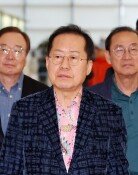The tears of todays Korean diaspora
The tears of todays Korean diaspora
Posted May. 13, 2015 07:22,
Lee Kuan Yew, the founding father of Singapore who died in March this year, hailed from the Hakka, a Chinese ethnic subgroup. The Hakka migrated from the north to the south to avoid the invasion of other tribes after the late Han Dynasty. They left China and scattered around the world, ranging from Southeast Asia to Europe, the U.S., and Latin America. They are called Jews of the Chinese world or gypsies of Asia.
Diaspora means scatter abroad. It used to refer to Jews who left Palestine and settled in other countries, but it is now broadly used to describe people leaving their home country or group immigrants. The migration of the Hakka is often called the Chinese version of the Diaspora. The Korean Diaspora refers to Koreans who were forced to move to the Maritime Province in the late 19th century due to the collapse of their country and again to Central Asia under the rule of Stalin.
A documentary film, Ahn Hyun-soo, Two Countries and One Love, which was aired on Sunday, made viewers cry by showing the life of the 21st-century Korean Diaspora. It was about Ahn Hyun-soo, a skater who was once the top skater in Korea but became a Russian citizen in 2011, and his wife, Woo Na-ri, who helped him win three medals in the 2014 Sochi Olympics. Their love in a one-bedroom apartment for athletes has become popular on the Internet. Ahn overcame all the obstacles only with passion for skating and became a hero in Russias short track skating, and his wife supported him by cooking and doing the dishes in a small basin. The couple reminded of the power of love.
Ahns migration is different from the past diaspora caused by the historical tragedy. Even a day before he headed for Russia, he said he wanted to stay in Korea, if possible. However, what forced him to move to Russia was the bad practices in the Korean sports community riddled with group fights and the manipulation of game results. The tears that they had to shed until they took root in the new country show the distorted portrait of our society today.
mskoh119@donga.com







